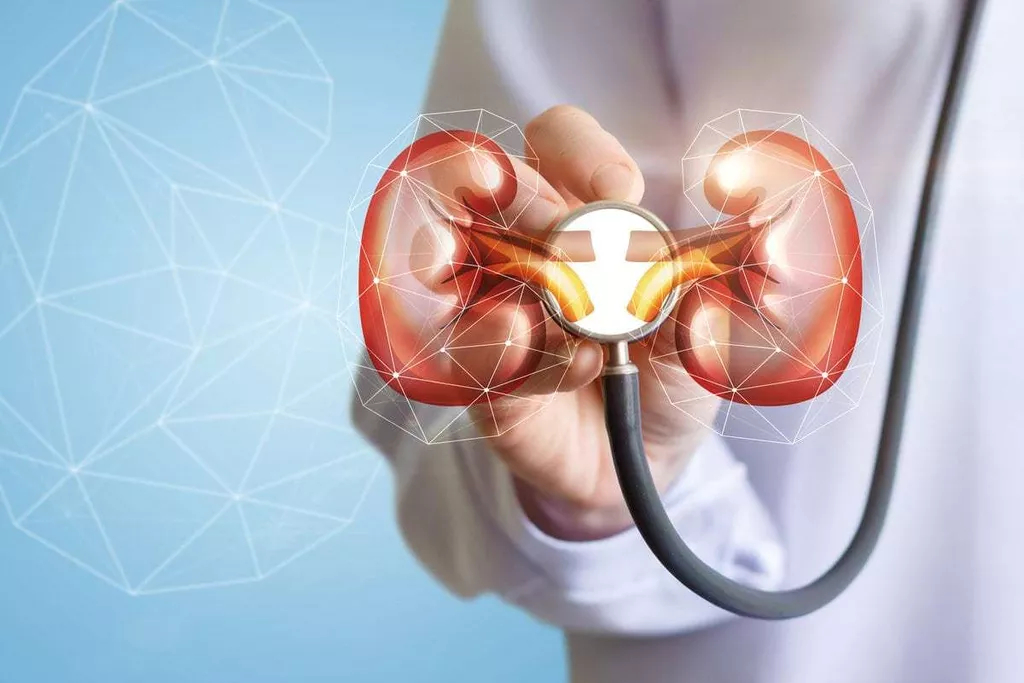Alcohol and hypoglycemia: Link, signs, and treatment
Contents
In type 1 diabetes, gluconeogenesis is responsible for a significant proportion of increased basal hepatic glucose output, and patients may therefore be more sensitive to ethanol. However, in a study of fasted type 1 diabetes controlled by hypoinsulinemic clamp, there was no difference in glucose response to a 1-h infusion of ethanol (peak level 26.2 mmol/l) or saline . In nondiabetic subjects, reduced glucose production seems to be matched by inhibition of glucose utilization at low and moderate ethanol concentrations (4–14 mmol/l) . Alcohol hypoglycemia has been reproduced by sustained (8-h) administration of ethanol, with blood levels up to 97 mmol/l .
Can stress cause hypoglycemia?
You may not realize it, but becoming severely stressed can trigger adrenal fatigue, which can lead to hypoglycemia. This is because several adrenal hormones including cortisol, epinephrine, and norepinephrine play critical roles in the regulation of your body's blood sugar levels.
We also thank Mark Cleasby, PhD, from Edanz Group (/ac) for editing a draft of this manuscript. This research did not receive any specific grant from funding agencies in the public, commercial or not‐for‐profit sectors. Considering the possibility that inactive ALDH2 genotypes might influence the results, additional analyses were carried out in the subgroup of participants with both active ADH1B and ALDH2 genotypes. The OGTT, OGATT and OATT in this subgroup showed similar patterns and tendencies to those in all participants, although the differences did not reach statistical significance because of the smaller sample size (Tables , , , ). It is necessary to confirm these findings by accumulating more cases in the future. That can make it especially difficult to get a grip on how many carbs and calories you’re consuming.
Addiction Treatment Programs
As a result, those patients frequently have very low blood sugar levels . Ketoacidosis, which occurs primarily in diabetics, is a condition characterized by excessive levels of certain acids called ketone bodies (e.g., acetone, acetoacetate, and β-hydroxybutyrate) in the blood. Elevated levels of those compounds can cause nausea, vomiting, impaired mental functioning, coma, and even death. Ketoacidosis is caused by complete or near-complete lack of insulin and by excessive glucagon levels. Among their many functions, insulin and glucagon regulate the conversion of fat molecules (i.e., fatty acids) into larger molecules (i.e., triglycerides), which are stored in the fat tissue.
A year prior to this visit, she complained of nausea and abdominal pain, was diagnosed with small intestinal bacterial overgrowth and was encouraged to start a ketogenic diet. Her weight at the start of the diet in December 2018 was approximately 73 kg . She was consistent with this diet until about 2 weeks prior to her PCP visit in November 2019 when she developed fatigue, mental fogginess, and sugar cravings.
Alcohol interacts with diabetes medications
This situation can be amplified if the drinker vomits repeatedly. Vomiting can lead to dehydration and a reduced blood volume, which, in turn, increases the levels of certain stress hormones in the blood called catecholamines. Catecholamines further decrease insulin production and increase glucagon production. Accordingly, physicians who treat diabetics known to consume large amounts of alcohol must be aware of the risk of alcoholic ketoacidosis in those patients. The ketogenic diet, which has become an increasingly popular diet, severely restricts carbohydrate intake to shunt metabolism towards fatty acid oxidation and production of ketones as a fuel source.
Alcohol can also interact with some medications that are prescribed to people with diabetes. Even if you only rarely drink alcohol, talk with your healthcare provider about it so that he or she knows which medications are best for you. If someone plans to consume alcohol, they should eat enough food beforehand, as alcohol intake can impair blood sugar for several hours. Doctors recommend ensuring carbohydrate intake before and while drinking to maintain blood sugar levels in the target range. However, more long-term studies need to be conducted to determine the chronic effects of hypoglycemia on brain physiology and function.
- The body needs to detox from too much sugar, alcohol, caffeine and other stimulants that can exacerbate hypoglycemia.
- Low blood sugar may cause alcohol cravings, but drinking more alcohol forces the liver and pancreas to produce more insulin.
- Healthline has strict sourcing guidelines and relies on peer-reviewed studies, academic research institutions, and medical associations.
- In one study of 275 originally potent diabetic men, heavy drinkers were significantly more likely to develop impotence during the 5-year study period than were moderate drinkers (McCulloch et al. 1984).
We carried out the 75‐g oral glucose tolerance test , combined 75‐g glucose and 20‐g alcohol tolerance test and 20‐g alcohol tolerance test on separate days, early in the morning and after an overnight fast. IRI, immunoreactive insulin; PG, plasma glucose; TG, triglyceride. Diabetic eye disease (i.e., retinopathy) is another troublesome tissue complication of diabetes and one of the leading causes of blindness in the United States today.
Alcoholism and hypoglycemia
Discussion of the case includes a review of the physiology of glucose homeostasis and the effects of alcohol on that balance. Also included are suggestions about how to detect hypoglycemia and how to manage patients who are convinced they are suffering from hypoglycemia. NA, data not available; OATT, 20‐g alcohol tolerance test; OGATT, combined 75‐g glucose and 20‐g alcohol tolerance test. Gaziano JM, Buring JE, Breslow JL, Goldhaber SZ, Rosner B, Van Denburgh M, Willet W, Hennekens CH. Moderate alcohol intake, increased levels of high-density lipoprotein and its subfractions, and decreased risk of myocardial infarction.
The liver regularly releases a form of glucose into the bloodstream, maintaining steady blood sugar levels. However, the mechanism involved has not been unequivocally established. We carried out a prospective trial to compare the effects of glucose and alcohol consumption, alone or in combination, on glucose and lipid metabolism. Metformin, a medication that decreases insulin resistance, can cause potentially lethal side effects in patients whose liver is not functioning properly. Accordingly, patients who abuse alcohol and are therefore at risk for liver damage must not take metformin. Untreated hypoglycemia can lead to severe and long-term health problems, which is why it is crucial to keep blood sugar levels within a typical range.
Characteristics of the participants
Such measurements might have assisted understanding of the mechanisms of the effects of glucose and alcohol consumption on blood glucose fluctuations. Each participant made three visits on separated days within 3 months of providing their informed consent. A 75‐g oral glucose tolerance test was carried out at visit 1, then a combined 75‐g glucose and 20‐g alcohol tolerance test was carried out at visit 2.

Elevated levels of NADH, such as occur during ethanol metabolism, negatively affect a number of critical dehydrogenases in the liver that are required for gluconeogenesis . For example, the conversion of lactate to pyruvate will be strongly inhibited by the increased level of NADH caused by the oxidation of ethanol. In addition, malate conversion to oxalacetate by NAD malate dehydrogenase, which is a critical reaction in gluconeogenesis, will be inhibited by the high level of cytosolic NADH. Alanine is another key gluconeogenic intermediate whose metabolism is profoundly altered by ethanol oxidation. Alanine is converted to pyruvate in the liver by alanine aminotransferase, but the elevated levels of NADH ensure that pyruvate will be immediately converted to lactate by lactate dehydrogenase.
This novel mechanism may in part underlie the well known hypoglycemic properties of alcohol in diabetic patients or in alcoholics with hepatic failure. When someone consumes alcohol, the liver may then neglect blood sugar level maintenance in favor of breaking down alcohol. A 50-year-old man, known to be an alcoholic, presented after being found unresponsive at home in bed. He had been drinking the night before, but his family members could not arouse him in the morning. Further history elucidated that he had had a cough for 1 month and 2 days of epigastric pain without vomiting, hematochezia, or diarrhea.
This requires a specific NAD +/NADH ratio for the reductive synthesis of glucose . Plasma glucose and insulin concentrations did not change during the OATT, and hypoglycemia was not identified . There were no differences in plasma glucose or ethanol fluctuations between the sexes, participants with differing causes and risk factors of alcoholism alcohol‐metabolism genotypes, or participants with differing alcohol consumption habits. On the day of admission to the hospital and on the following day, the fasting blood sugar levels of the drinking type 2 diabetics were significantly higher than those of the nondrinking type 2 diabetics.
Finally, a 20‐g alcohol tolerance test was carried out to determine the effects of alcohol alone on blood glucose concentration at visit 3 . A total of 20 g of alcohol was loaded, because this amount is the daily intake limit recommended by the Ministry of Health, Labor and Welfare, Japan. Participants were prohibited from drinking alcohol the day before each visit, and visited early in the morning after an overnight fast. For the OGTT, Trelan‐G75g (AY Pharmaceuticals Co., Ltd., Tokyo, Japan) was used. In the OGATT, each participant consumed 62.5 mL of shochu, equivalent to 10 g of alcohol, with Trelan‐G75g, and after 30 and 60 min, they consumed 31.25 mL of straight shochu, .

He was given oral omeprazole , IV ranitidine, and IV ceftriaxone, and placed on an oxygen concentrator. The next day, the patient improved and was normothermic and normotensive, with normal oxygen how drugs affect the brain saturation, and with normal abdominal and cardiopulmonary examination results. The patient was discharged with the diagnosis of alcohol-related hypoglycemia, gastritis, and aspiration pneumonia.
People should also avoid strenuous activities on the same day they consume alcohol. An increase in activity raises insulin sensitivity and increases the risk of hypoglycemia. Once the person’s blood sugar levels are in a safe range, they should eat a snack or meal to prevent blood sugar from dropping rehabilitation center baton rouge again. Additionally, if an individual drinks on an empty stomach or when their blood sugars are already low, it increases the likelihood of hypoglycemia. He awoke rapidly, and the results of his neurologic examination were normal, but he remained hypothermic and hypoxic with epigastric guarding.
Can hypoglycemia turn into diabetes?
An overproduction of insulin causes reactive hypoglycemia. Having reactive hypoglycemia may mean you're at risk of developing diabetes.
Third, alcohol may enhance the increase in triglyceride levels in the blood that usually occurs after a meal. A daily cocktail or two may improve blood sugar management and insulin sensitivity. If you have one or more drinks a day, you may find that your A1C is lower than during times you weren’t drinking. But if you don’t drink regularly, this doesn’t mean you should start. After all, other aspects of moderate drinkers’ lives may be behind the link. The patient received 15 ml of D50, improved immediately to a normal mental status, and had normal neurologic examination results.
Three of the five had permanent damage to the nervous system, while the other two patients died without recovery from initial coma. Infusion of alcohol during a standard insulin tolerance test in six healthy subjects inhibited the usual rebound of glucose after hypoglycemia. Alcohol interferes with hepatic glyconeogenesis and induces hypoglycemia whenever giyconeogenesis is required to maintain normal glucose levels. Diabetics receiving other hypoglycemic agents should be warned about the blood glucose-lowering action of alcohol. Second, diabetics who have consumed alcohol, particularly those with type 1 diabetes, experience a delayed glucose recovery from hypoglycemia. Detailed analyses demonstrated that although the glucagon and epinephrine responses to hypoglycemia were unaffected, the growth hormone and cortisol responses were reduced after alcohol consumption.